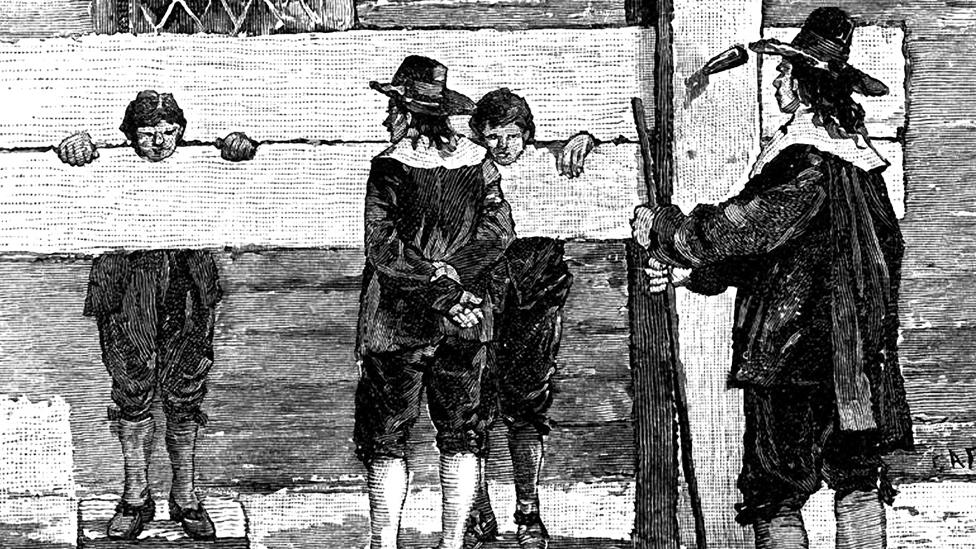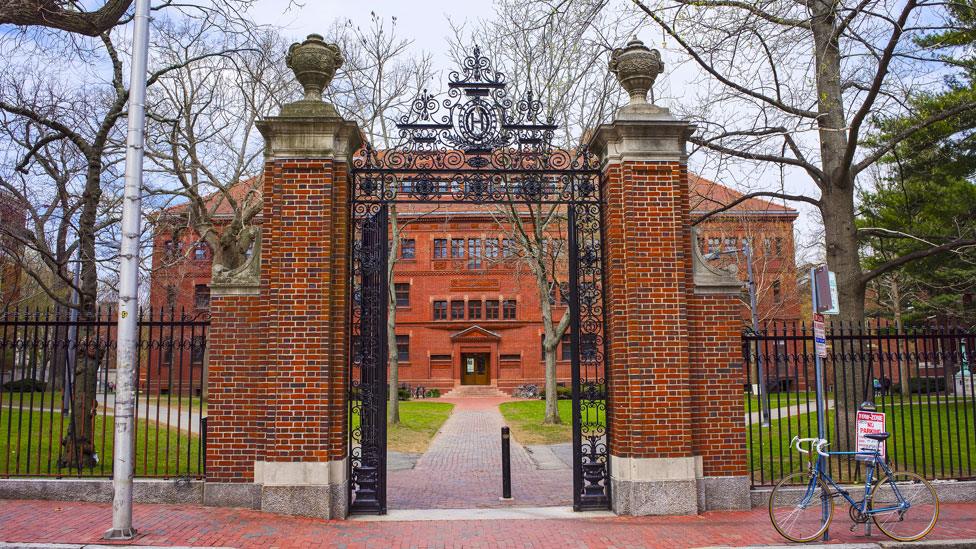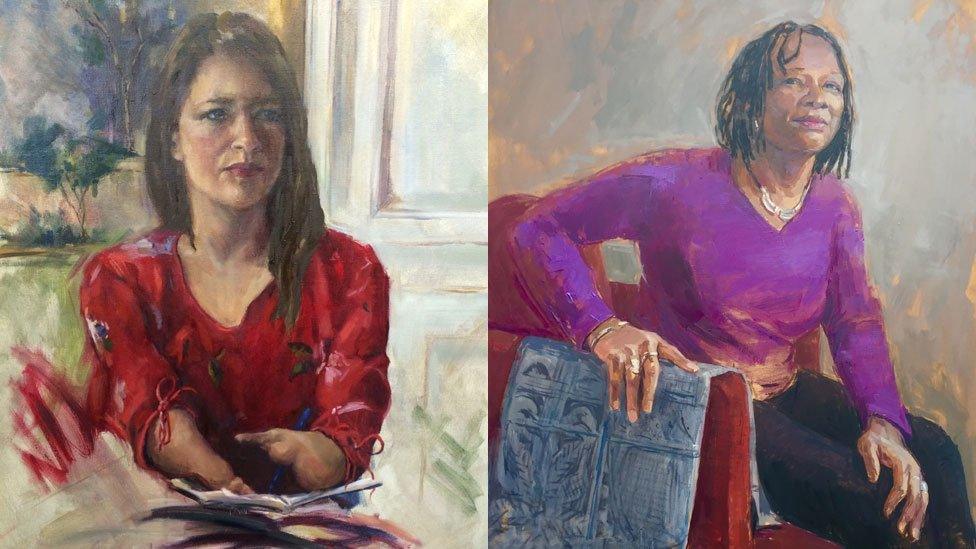Why is Harvard ditching the puritans?
- Published

Harvard University has defended plans to remove a reference to "puritans" from its ceremonial song, as part of a project promoting "inclusion and belonging".
The proposal to change the fusty lyrics of a 19th Century song, "Fair Harvard", has started a very contemporary argument about identity and how universities represent their own past.
Harvard's "presidential task force on inclusion and belonging" has announced a competition to find a replacement for the song's ending, which praises the university's puritan heritage: "Be the herald of Light, and the bearer of Love, Till the stock of the Puritans die."
They want this symbol of Harvard's identity, sung at university ceremonies, to refer to something broader and more inclusive than the starchy New England colonialists.
But according to the Harvard Crimson university newspaper, the decision to ditch the reference to puritan founders seems to have had a lukewarm response among students.
'Editing history'
There were questions raised about the relevance of changing a song from the 1830s that has never really been a source of contention.
On Twitter, there were complaints about "editing history" and censorship.
Academic and social commentator Frank Furedi described it as "morally disoriented".

How open are the gates to Harvard University? And will song lyrics change that?
Even if puritans had once been a dominant force, there was no suggestion that the frugal religious reformers were still getting an unfair advantage in what is now the world's wealthiest university.
About half the most recent intake is from an ethnic minority with close to equal proportions of male and female students.
But Professor Danielle Allen, co-chair of the university's inclusion task force, said in a statement that the symbols and mottos had to be appropriate for everyone "regardless of background, identity, religious affiliation or viewpoint".
She said the current university song lyrics suggested that "the commitment to truth, and to being the bearer of its light, is the special province of those of puritan stock. This is false".

More stories from the BBC's Global education series, external looking at education from an international perspective, and how to get in touch.
You can join the debate at the BBC's Family & Education News Facebook page, external.

Prof Allen also pointed out that the song had been changed before, with a reference to "sons" being changed to something more gender neutral in 1998.
And as well as looking for different words, the university is considering an alternative tune or style for the song, with the suggestion of a hip-hop version.
'Safe spaces'
This is the latest university battle over emblems and language, with arguments over how institutions should balance their historic roots with the need to appeal to a modern, diverse range of students.
These come alongside strongly-contested debates about "safe spaces" and "no-platforming", with arguments over whether students have a right to block views they find offensive.

What does a Harvard student look like? And how should the university reflect its past?
But some student campaigners have brought about changes.
After a long-running protest, Yale University announced earlier this year that it would re-name Calhoun College, named after a 19th Century advocate of slavery.
It is now to be named after a female computer scientist, Grace Murray Hopper.
Harvard is dropping the title of "house master" because of connotations of slavery, and ending the use of a seal that includes the family crest of a notoriously brutal slave trader.
The university was once an owner of slaves and has held a series of events and commemorations to examine its own connections to the slave trade.

Oxford University has a project to create more diversity in the paintings on display
Georgetown University, in a bid to come to terms with its own legacy of slave owning, has promised extra support in the admissions process for any descendants of slaves sold by the university in the 1830s.
In the UK, there have also been questions about public symbols and memorials.
Students at the University of Bristol have called for the re-naming of a building because of claims of historic links with wealth derived from slavery.
Oxford University's Oriel College had a high-profile controversy over whether a statue of the Cecil Rhodes should be removed, with protestors arguing that the Victorian magnate's views on race made him an unsuitable figure to be commemorated.
But the call for the statue's removal was rejected.
Oxford University last month announced that it was putting up more than 20 portraits to ensure more images of women and people from ethnic minorities were represented on its walls.
The competition at Harvard to find new words for the university song is open until September.
But the debate about university symbols is going to last much longer.